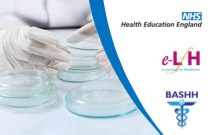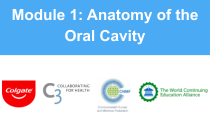PROJECT ROZANA: Supportive Care of a Patient with Kidney Failure
Lee Hayes & Lynn Brown
The principles of supportive care for end-stage renal failure patients.
PROJECT ROZANA: Psychosocial Support of Patient and Their Family
Lee Hayes & Lynn Brown
Supporting a patient and their family in dealing with kidney failure.
Specific Interventions to Eliminate Mother to Child Transmission of HIV
National HIV/AIDS Control Program, Ministry of Health (NACP/MoH) in collaboration with Jhpiego
This module discusses specific interventions to eliminate mother-to-child transmission of HIV.
Biosafety and Hazard Management
Dr. Ombeni Kija, and Mr. Switbert K Mduda
This course provides essential training in biosafety and hazard management for healthcare providers, focusing on safe practices within laboratory environments. Continuous medical education on biosafety practices has proven to reduce incidents by up to 50% (Biosafety Journal, 2023). Through interactive lessons and real-life case....
Mental Health Training
Dr. Saidi B, Dr. Grace Andrew Mapunda, and Dr. Irene Robert Mageni
This course emphasizes the importance of mental health, not just as the absence of mental illness but as a state of well-being that affects how individuals feel, think, and behave. Mental health impacts how we handle stress, make choices, and relate to others. In healthcare settings, where high-stress environments are common, un....
Module 3: Advocacy for Pediatrics in a Disaster
Wentiirim Annankra, and Samuel Borer
This module provides an understanding of the importance of advocacy in disasters and goes through some strategies to advocate for children impacted by disasters with key stakeholders and decision makers.
Causes of Nausea and Vomiting
Saskie Dorman
This session describes the physiological processes underlying nausea and vomiting and offers a framework for working out the causes of nausea and vomiting, as a basis for assessment and management of these problems. It focuses on patients with advanced disease but is not a comprehensive view of the causes of nausea and vomiting....
SESSION 1: Climate and Change for the Health Professional
Caradee Wright
This session provides an in-depth exploration of the intersection between climate change and human health, emphasizing the crucial role of health professionals in engaging in climate mitigation, adaptation, and resilience strategies, and current policy priorities in the African context. Through case studies and discussions, the....
Assessment of Breathlessness
Tim Peel
This session gives a framework of how to assess breathlessness as an essential first step to appropriate management in the patient approaching the end of life.
Management of Depression
Annabel Price and Max Henderson
This session provides a framework for an integrated management of depression.
Recognising Your Own Limitations in Symptom Management
Sarah Wilcox
This session discusses how being aware of your own skills and limitations can improve symptom management and care for patients at the end of life.
Introduction to Procurement and Supply Chain Management
The Empower Group https://www.empowerschoolofhealth.org/
By the end of this course, you will have learnt about the following subjects: Introduction to Procurement and Supply Chain Management.
Supply Chain Management During Public Health Emergencies
The Empower Group https://www.empowerschoolofhealth.org/
By the end of this course, you will have learnt about the following subjects: Supply Chain Management During Public Health Emergencies
SESSION 4: Extreme Weather: Hurricanes and Flooding
Barbara Sattler
This presentation discusses the increased risks of extreme weather events such as hurricanes and flooding due to climate change. It highlights the health impacts on vulnerable populations and the socio-economic and environmental consequences of such events.
SESSION 9: Climate Change Mitigation, Adaptation and Resilience
Dr Heather Baid
This presentation discusses climate change mitigation, adaptation, and resilience strategies. Nurses will learn how healthcare systems can reduce their greenhouse gas footprint and adapt to changing climate conditions.
Diagnosing Gonorrhoea
Jim Wade, Nina Vora and Michaela Day
This session explains how to diagnose gonorrhoea using the available tests. It describes the samples that are required, the sensitivity and specificity of the tests, and their potential advantages and disadvantages.
Diagnosing Syphilis
Margaret Kingston, Andrew Turner and Susanna Currie
This session explains how to diagnose syphilis. It describes what samples to take and their storage and transport. It explains diagnostic tests, how to perform them, their sensitivity and specificity and their potential advantages or disadvantages. The timescales between exposure and tests becoming positive are discussed, as is....
Diagnosing Trichomoniasis
Jackie Sherrard
This session explains how to diagnose infection with Trichomonas vaginalis (T. vaginalis). It describes what diagnostic tests are available and the collection and management of suitable samples. It also covers the interpretation of test results.
Module 1: Anatomy of the Oral Cavity
Jill Iliffe RN, RM, BAS, MIntS, IDMHHRL
Module 1 provides a brief review of the anatomy of the oral cavity and the functions of the structures found in the oral cavity.
Module 2: Dentition and Care of Primary Teeth
Jill Iliffe RN, RM, BAS, MIntS, IDMHHRL
Module 2 outlines primary dentition and explains the importance and function of primary teeth and the care required for healthy primary teeth through pre-conception, pregnancy, and primary teeth eruption.
Module 5: Common Oral Diseases and Conditions
Jill Iliffe RN, RM, BAS, MIntS, IDMHHRL
Module 5 gives an overview of common oral diseases and conditions such as dental caries; gingivitis; periodontitis; edentulism; oral cancers; congenital malformations and Noma. The module also discusses traumatic dental injury and outlines the initial care for common dental emergencies.
Module 11: Mental Health and Management of Mental Disorders
Dr. Samuel Likindikoki, and Dr. Isaac Lema
Module 11 delves into mental health and disorders, addressing depression, self-harm/suicide, epilepsy, psychoses, disorders due to substance abuse, and rehabilitation of mental health disorders. Participants understand the burden, risk factors, and clinical presentations of mental health disorders, and learn to perform assessmen....
Medico-legal Considerations Associated with Conscious Sedation
Kathy Wilson
This session will consider consent, standards of practice and professional conduct in relation to conscious sedation for dentistry.
Changing Patterns of Oral Health and Disease
Paul Batchelor
This session covers the evolving pattern of oral health and diseases within the UK population. We will examine how these have changed over the years, the variation within society of oral disease and non-clinical measures of oral health.
Developing Rapport
Mike Busby
This session will cover the importance of developing rapport with patients.
























